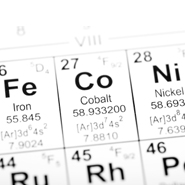Posted 10 December 2013
€2 million ERC funding for UCD scientists to make drug synthesis safer and less expensive
Noble metals like gold, platinum, and palladium are used as catalysts in key chemical transformations during the preparation of over 90% of pharmaceutical drugs. These metals can leave behind residues in the drug product which must be removed to a minimum recommended level before the drug can be considered safe for patients.
Common, and less expensive, metals like nickel, iron and manganese do not leave behind dangerous metal residues when used as catalysts, but they do not have the “catalytic activity levels” required for similar chemical transformations. As a result, industry continues to use noble metals in the drug production process.
Professor Martin Albrecht at University College Dublin aims to develop a new catalytic system which he believes has the potential to vastly increase the “catalytic activity levels” of common metals making them potentially usable in drug production.
The European Research Council has awarded Professor Albrecht €2 million to advance his catalytic system.
“By applying our catalytic system we are aiming to massively increase the activity levels of common metals,” says Professor Albrecht, Professor of Inorganic Chemistry at the UCD School of Chemistry and Chemical Biology and the Centre for Synthesis and Chemical Biology at University College Dublin.
“If we are successful, this will enable cheap and abundant metals like iron or nickel to replace the use of noble metals in the chemical transformations needed to create new compounds. This would make the processes much less expensive and leave little or no harmful residue behind in the final compound.”
(Produced by UCD University Relations)

